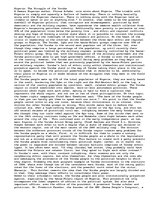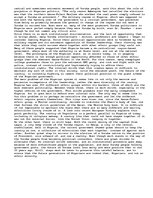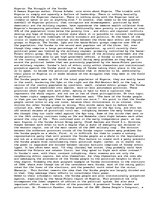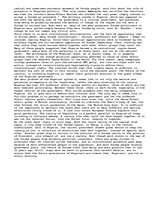A famous Nigerian author, Chinua Achebe, once wrote about Nigeria, "The trouble with Nigeria is simply and squarely a failure of leadership. There is nothing basically wrong with the Nigerian character. There is nothing wrong with the Nigerian land or climate or water or air or anything else." In essence, that seems to be the greatest downfall of Nigerian politics, that corruption and mismanagement, practiced by both democratic and the military regimes, have squandered the immense wealth collected from Nigeria's burgeoning petroleum industry. Additionally mass poverty is pervasive as over 45% of the population lives below the poverty line , and ethnic and regional conflicts destroy any hope of forming a united state where it is possible to reinvent the economy to put Nigeria in the limelight of world economics and politics. At the heart of the crisis in leadership is the internal strife between the three main ethnic and regional groups in Nigeria. The Yoruba, Igbo and the Hausa-Fulani groups comprise over 68% of the population; the Yoruba is the second most populous out of the three. Yet, even though they comprise a large percentage of the population, up until recently their political power was limited by the military regimes, primarily controlled by the Hausa-Fulani ethnic group. Only now, with the dissipation of the military government are the Yoruba politicians able to get high government offices, a Yoruba is even the president of the country. However, the Yoruba are still facing many problems as they begin to ascend the political ladder that was previously populated by the Hausa-Fulani parties and military regimes.…
Nigeria: The Struggle of the Yoruba, a paper describing the problems meeting the Yoruba people of Nigeria, and potential fixes for them. Suggests a new policy of self rule. See attachment for sources.




